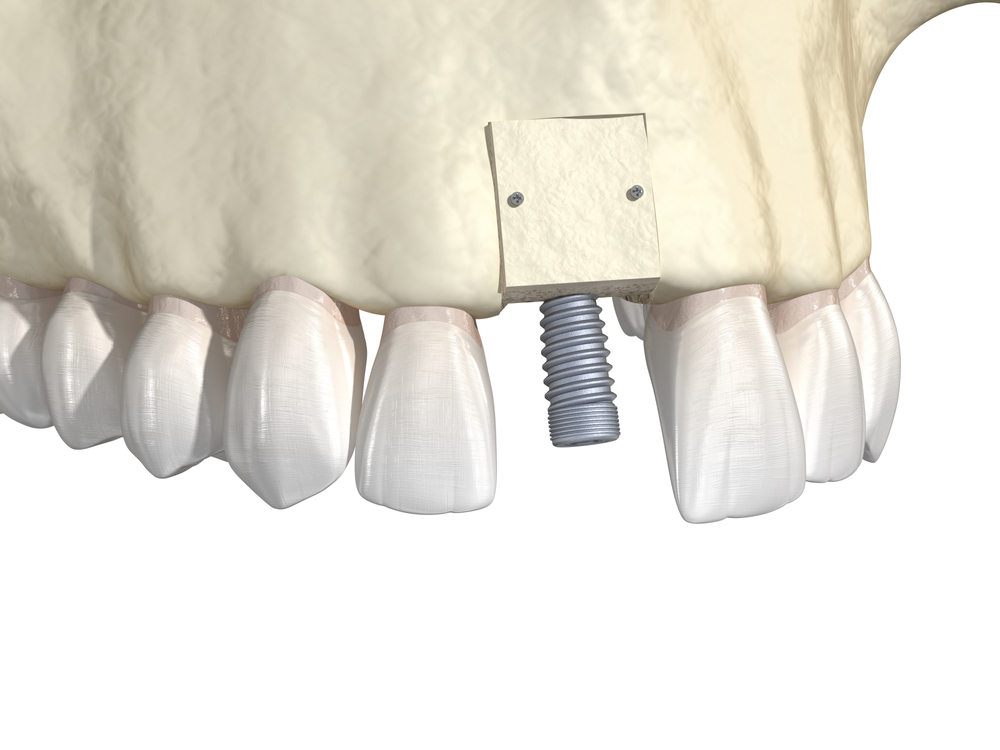HEALTHY, CONFIDENT, BEAUTIFUL SMILE
The Bone Grafting Procedure
If you’ve landed on this page, you are most likely wondering what bone grafting is and how it relates to dental implants. While it’s not necessary for all patients, it’s an essential step for many. Additionally, you may wonder why some people need bone grafting for dental implants, and others don’t. Today we’ll go over what bone grafting is and why it’s required for some people.

First, we’ll define the bone grafting procedure. It’s a relatively minor process consisting of a small incision made in the gums to access the bone underneath. The grafting material is then added, and your body begins to deposit new bone cells around the new material. Often the material comes from an animal or human donor and is treated by a laboratory to ensure it’s sterile. It’s covered by a collagen membrane and acts as a scaffold on which your body builds new bone.
Why Some People Require It
Bone grafting is required for patients who have experienced jaw bone loss and cannot support the dental implant. Bone loss can result from many different things, such as:
- Tooth decay
- Injury
- Tooth extraction
- Untreated gum disease (periodontitis)
- Inadequate oral hygiene
When a tooth is lost or removed without being replaced, the jaw can begin to deteriorate. Additionally, the surrounding teeth begin to shift toward the missing space, causing a misalignment which can wreak havoc on your teeth when chewing. Fortunately, a bone graft can help reverse any bone loss and help patients regain their oral health. Regardless of the cause, grafting provides patients with a safe and long-term tooth loss solution.
California Dental Care
As you can see, the reason why some people need bone grafting for dental implants depends on how much bone structure they have in their jaw. If you are unsure if you’ll need this procedure or not, you can schedule a consultation with us where we’ll take X-rays to determine if your jaw can support an implant. If you have any other questions, you can always reach us by phone at (707) 741-6090, or you can click here to contact us on our website.


